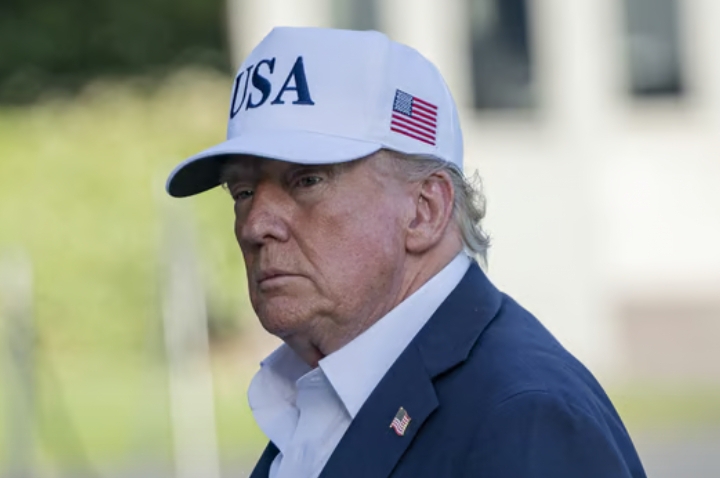Trump hosts leaders of five West African nations—Senegal, Liberia, Guinea-Bissau, Mauritania, and Gabon—for White House lunch focused on trade, investment, security, and countering Chinese and Russian influence, amid shifting U.S. foreign aid and immigration policies.
Trump to Host Five African Presidents at White House for Talks on Trade and Security


US President Donald Trump is set to host five African heads of state for a lunch meeting at the White House on Wednesday, where topics including commerce and trade are expected to be prominently discussed among a broader set of possible agenda items.
The meeting will bring together the presidents of Senegal, Liberia, Guinea-Bissau, Mauritania, and Gabon—five nations situated along Africa’s Atlantic Coast—at Trump’s invitation. According to officials from the invited countries who spoke with AFP, they anticipate discussions will revolve around trade, investment, and security, among other issues, during their gathering in the White House’s State Dining Room.
Despite the anticipation, few specific details have been released regarding the White House’s precise objectives or planned outcomes for the lunch.
The gathering coincides with the Trump administration’s ongoing emphasis on tariffs and trade agreements, particularly its efforts to secure a steady supply of critical minerals. However, the five African nations in attendance do not possess the same level of mineral resources as other countries on the continent, such as the Democratic Republic of Congo.
This meeting also follows the Trump administration’s recent announcement of the formal closure of the U.S. foreign aid agency USAID. The administration portrayed the move as a departure from a “charity-based model” of foreign relations, a message that seems to have resonated with the visiting leaders.
Liberian President Joseph Boakai accepted the invitation with the intention of repositioning Liberia beyond the status of an “aid recipient,” according to his press secretary, Kula Fofana. “Our interest is to look more to trade and engagement partners who will invest,” she said.
The spokesman for the Gabonese presidency, Theophane Biyoghe, noted that the meeting represents an opportunity to explore synergies aimed at fostering the industrialisation of Gabon’s economy.
Beyond trade, the gathering may also serve as a strategic counter to growing Chinese and Russian influence in the region. China has made substantial investments in several of the attending nations, while Russia has offered support to the newly established Alliance of Sahel States (AES), which includes military-led governments in Mali, Burkina Faso, and Niger. These countries border some of the nations participating in Wednesday’s meeting.
Security and narcotics trafficking may also be addressed. In April, Guinea-Bissau handed over four convicted Latin American drug traffickers to the United States Drug Enforcement Administration (DEA). The country is known to be a key transit hub for cocaine smuggled from Latin America to Europe and other parts of the world.
Ahead of his departure for Washington, Guinea-Bissau’s President Umaro Sissoco Embalo described the upcoming visit as “very important” for his nation. “Economically, this is a great opportunity opening for us,” he said, expressing hope that his country would benefit from the kind of support the U.S. has extended to others.
While the meeting presents potential opportunities for collaboration, past White House visits have sometimes turned contentious for foreign leaders. Ukrainian President Volodymyr Zelensky and South African President Cyril Ramaphosa were both at the center of politically sensitive incidents during meetings with Trump. In Ramaphosa’s case, Trump reportedly showed him a video promoting false claims of a “white genocide” in South Africa.
However, unlike those high-profile encounters, the five African leaders attending Wednesday’s event are not currently scheduled to appear before the press. White House Press Secretary Karoline Leavitt offered minimal insight, saying only that Trump would be hosting the five leaders for lunch in the State Dining Room.
In a related development, an internal administration memo leaked last month indicated that Gabon, Liberia, Mauritania, and Senegal are among 36 nations under consideration for inclusion in an expanded U.S. travel ban that would bar entry to the United States.

 বাংলা
বাংলা  Spanish
Spanish  Arabic
Arabic  French
French  Chinese
Chinese 
